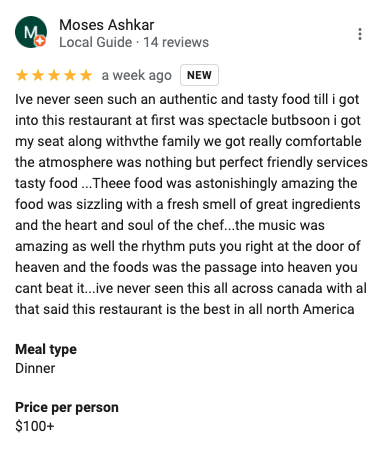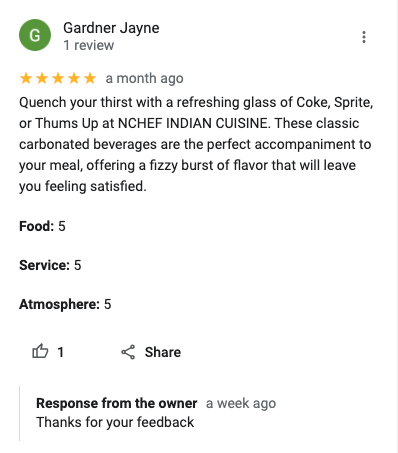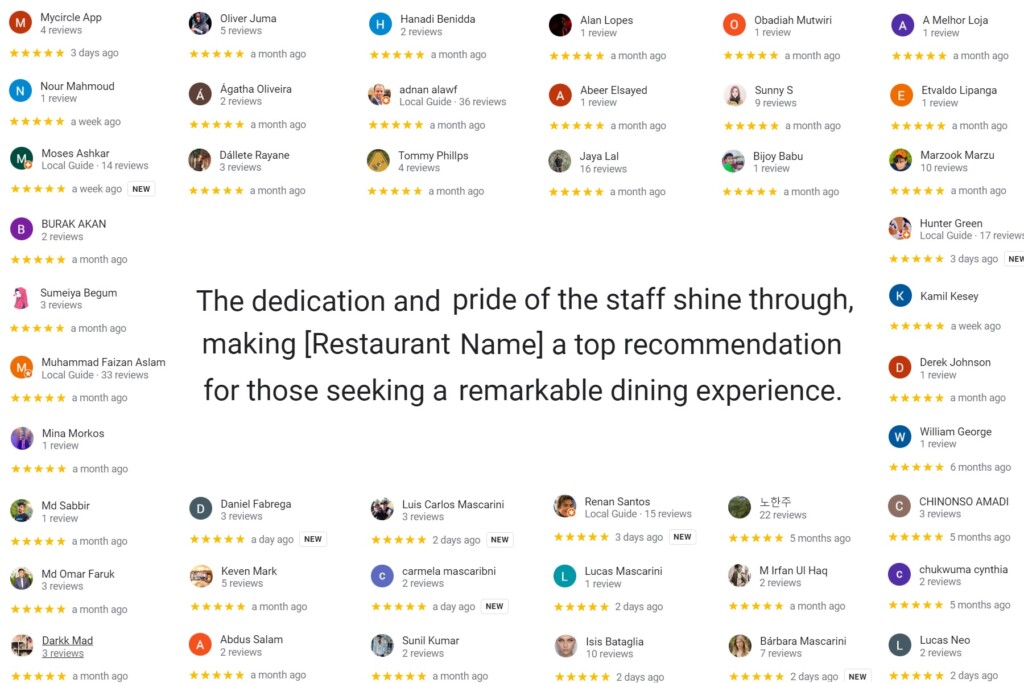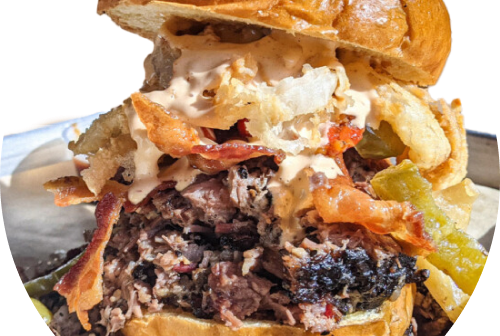In April, I wrote about a mysterious new “restaurant review” website in which a “critic” was publishing hundreds of lists of Texas’ best places to eat. The website, which could not be traced to a real owner or author, appeared to be AI-generated. The reviews were robotic clickbait with phrases like “a chilled glass of cocktail.”
Smart readers asked if well-known websites like Yelp and Google are next to be overtaken by bots. We now have an answer: yes.
This week, I’ve found hundreds of obviously fake, AI-generated restaurant reviews on Google Maps in the Dallas area. As the fake reviews proliferate, it’s becoming clear that casual diners trying to find a good meal are going to need to use all of their critical reading skills to navigate an automated web of deception.

Example: I recently heard about a new Syrian restaurant in Richardson called Old Damascus. I thought about going for lunch, so I visited Google Maps reviews to look at photos and see if the reviewers had a favorite lunch wrap. Google’s top review, by real person Samantha Moon Barakat, set the stage: “Not sure what’s going on with the Google reviews of this place. Most appear to be fake which is a little weird.” (She likes the falafel sandwich and tabbouleh, by the way.)
She wasn’t joking. When I counted, at least 110 of the 183 reviews appeared fake, because the writing sounds robotic, the authors don’t mention a single detail about the restaurant, and the accounts have never reviewed anything else in the Dallas area. Some excerpts: “Wonderful experience at ‘Old Damascus’ in Old Damascus! This restaurant sounds like a fantastic place.” “I cannot wait to return and explore more of their food wonders.” “Had dinner with some friends visiting NYC.” “I like their services.” “The Old Damascus is the best hotel in Texas.” “ive never seen this all across canada.”
My favorite: “The dedication and pride of the staff shine through, making [Restaurant Name] a top recommendation.” Oops!
After I counted, the number of total reviews for Old Damascus dropped suddenly from 183 to 75. But this is not the only Dallas-area restaurant with a long list of fake reviews. NCHEF Indian Cuisine in Plano had 1,311 reviews when I checked this week, which is surprising, given that when I tried to visit a few months ago, it was closed in the middle of lunch rush on a day when Google had said it would be open.

Then I dove into the reviews. The most recent says “Please send me Whatsapp.” Another warns, “Fake Google Reviews!!… [The owner] is very kind in responding to his own fake reviews about the ‘amazing sushi’ though lol.” About a month ago, a wave of fake reviews were all posted at about the same time, one of them focused entirely on soda. If you scroll far enough, you’ll find another batch of AI reviews all left under Portuguese or Brazilian names—and a Korean reviewer who posted photos of a Western landscape.
(Since I tallied fakes at NCHEF, its total number of reviews suddenly dropped from 1,311 to 921. The drops in numbers might reflect Google purging fake accounts.)
At Pokeworks in Arlington, I noticed a number of suspicious-sounding reviews from accounts, again with Portuguese or Brazilian names, who had only previously reviewed businesses in Brazil or Barcelona. “First time I ate a Poke,” said one of the accounts, which had previously been to both Brazil and Barcelona but never before in the United States.
After you read a lot of fake, AI-generated restaurant reviews, you’ll notice patterns. Not only do the writers never have any other reviews of local businesses, but sometimes they’ve never reviewed anything else at all. And the reviews follow a script, as the “[Restaurant Name]” example shows. I found one of those scripts repeated entirely at another new spot in Plano, Express India, with the same generic praise quotes (“a truly remarkable culinary journey,” “forever etched in my memory,” “culinary magic”) instead of any mention of the actual food and drink served. You’ll also notice that the AI adds some pseudo-personal notes (“my wife is a good cook”) as long as those details do not require any knowledge of the restaurant.
I have noticed that spambot reviews are all 5 stars, never lower, and arrive in batches. It’s not common to see only one bogus review. I always see them in large numbers. I did not find any spam reviews at high-profile new restaurant openings well-covered in the traditional media, like Crown Block or Mister Charles.
This leads me to wonder if the restaurant owners in question are obtaining the fake reviews in some manner. (In their defense, they may do so by mistake. They might contract, in good faith, with a social media marketing or SEO company that engages in shady practices.)
A manager at NCHEF in Plano replied to a Google review accusing them of manipulating fake reviews. The response: “If I said your review as well fake? No right so other reviews also put by customers only how you can say fake, google have no fake review policy so.” [sic]
What can we do about the situation? As with seemingly every issue raised by AI and the fakery of the internet, the answer is: it’s on individual users. Tech companies are chasing money, and their goals don’t align with ours. Nobody is willing to protect users from spam, fraud, or cash grabs. The garbagification of our internet puts more and more responsibility on individuals to educate themselves. “Spotting fake restaurant reviews” is the new “ignoring emails from Nigerian princes.”
Google itself boasts that it is blocking more fake reviews than ever, although its primary goal right now is to stop an even more insidious threat, fake business listings that are used to scam shoppers.
My best advice is to look for reviews with photos and specific details. Well, no, that’s my second-best advice. The best is to find a trusted news source you can look to as a guide, one where you can build connections with experts, follow their recommendations, and learn, if needed, how your own tastes differ from theirs. Like, say, the website you’re reading right now.
Author







